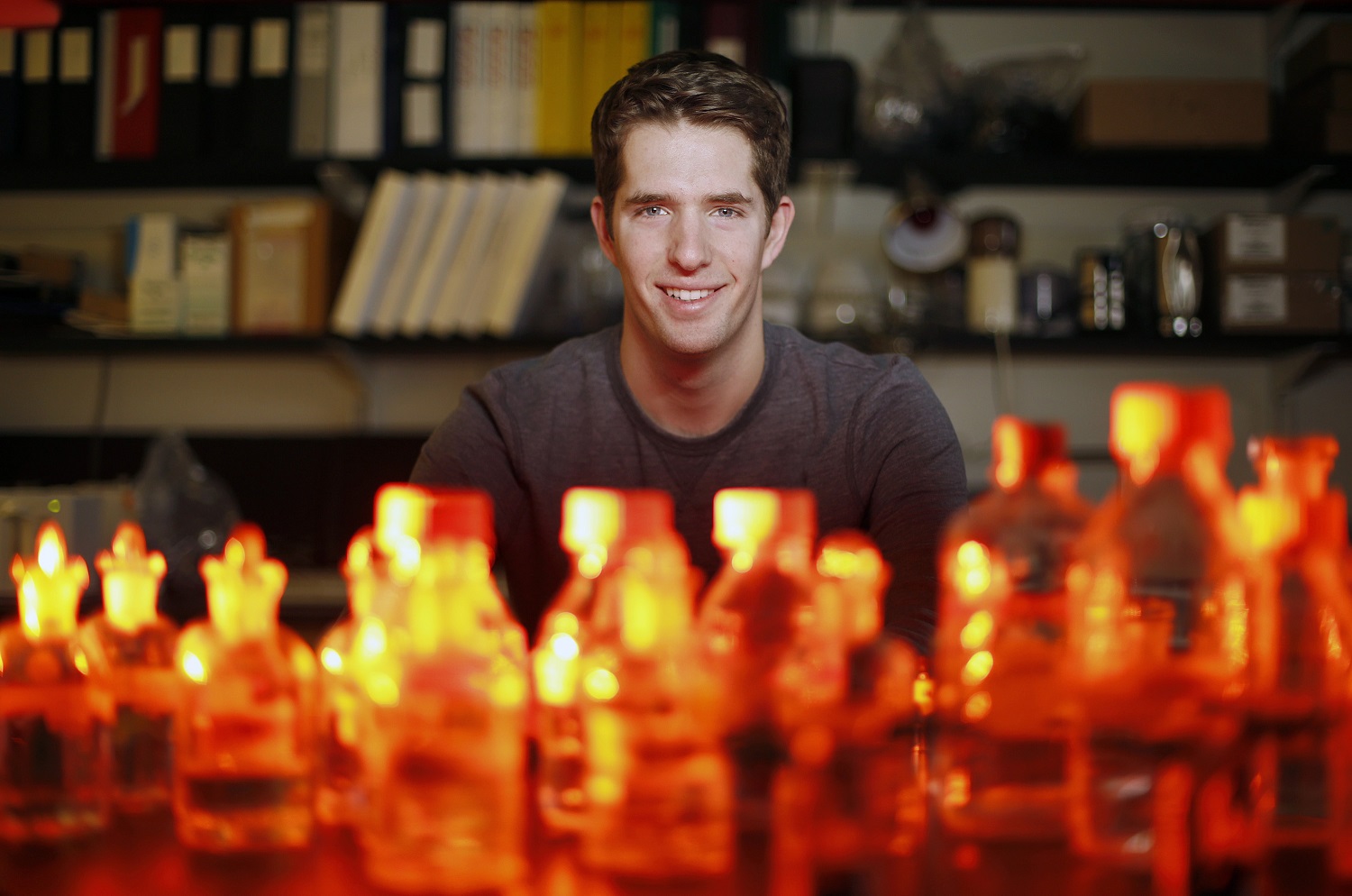Michael Dzakovich won the ISHS Young Minds award for the best poster presentation at the 15th ISHS Symposium on the Processing Tomato in Greece in June 2018 for his paper entitled "From bitter to better: Exploring natural variation in potentially bioactive tomato glycoalkaloids".

Michael Dzakovich received his BS and MS in horticultural science at Purdue University in 2013 and 2015, respectively, where his research focused around leveraging plant responses to light in order to increase the quality of greenhouse tomatoes. Currently, Michael is obtaining his Ph.D. in Horticulture and Crop Science as a USDA National Needs Research Fellow working under Dr. Jessica Cooperstone and Dr. David Francis at The Ohio State University. His research lies at the interface of plant genetics, analytical chemistry, and human health; focusing on how genetics impacts the amount and diversity of health beneficial compounds in tomatoes and how they alter the composition and functionality of mammalian liver tissue.
At the World Processing Tomato Congress, Michael presented some of his research on steroidal glycoalkaloids found in tomatoes. Recent evidence generated by untargeted metabolomics studies suggests that tomato glycoalkaloids may contribute to the health benefits associated with tomato consumption. However, little is known about the range in natural variation of tomato glycoalkaloids or the genes that control their conversion during ripening. To address some of these gaps, multiple families of tomatoes were created by crossing modern cherry and processing tomatoes to various accessions containing high amounts of α-tomatine in ripe fruits. Parents and F1 progeny were analyzed using a novel ultra-high performance liquid chromatography tandem mass spectrometry (UHPLC-MS/MS) method and this information has been used to advance these populations for genetic mapping and QTL discovery.
To contact Michael:
Michael P. Dzakovich, 2015 Fyffe Rd., Columbus OH 43210, United States of America; e-mail: michaelpdz@gmail.com


 Michael Dzakovich received his BS and MS in horticultural science at Purdue University in 2013 and 2015, respectively, where his research focused around leveraging plant responses to light in order to increase the quality of greenhouse tomatoes. Currently, Michael is obtaining his Ph.D. in Horticulture and Crop Science as a USDA National Needs Research Fellow working under Dr. Jessica Cooperstone and Dr. David Francis at The Ohio State University. His research lies at the interface of plant genetics, analytical chemistry, and human health; focusing on how genetics impacts the amount and diversity of health beneficial compounds in tomatoes and how they alter the composition and functionality of mammalian liver tissue.
Michael Dzakovich received his BS and MS in horticultural science at Purdue University in 2013 and 2015, respectively, where his research focused around leveraging plant responses to light in order to increase the quality of greenhouse tomatoes. Currently, Michael is obtaining his Ph.D. in Horticulture and Crop Science as a USDA National Needs Research Fellow working under Dr. Jessica Cooperstone and Dr. David Francis at The Ohio State University. His research lies at the interface of plant genetics, analytical chemistry, and human health; focusing on how genetics impacts the amount and diversity of health beneficial compounds in tomatoes and how they alter the composition and functionality of mammalian liver tissue.


























